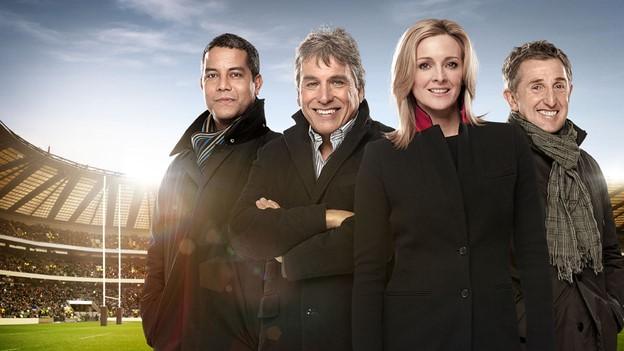Six Nations 2017: Jeremy Guscott on Scotland, England, Wales & Ireland
- Published
- comments
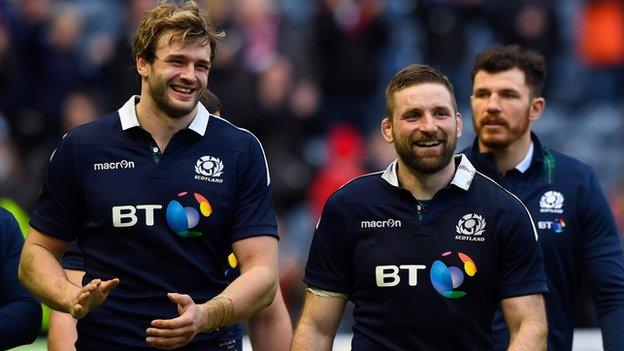
Barclay, centre, led his country as captain for the first time from kick-off
Just when you think you have the Six Nations pegged, it confounds expectations once again.
Scotland beating Wales was not a shock as such, but doing so with plenty to spare was a surprise.
Italy were expected to be fodder for Eddie Jones' England at Twickenham on Sunday, but exploited the intricacies of the laws to throw a spanner in the works as the hosts spluttered to victory.
Ireland's win over France was one for the purists, but keeps Joe Schmidt's side in contention for the title shake-up on the final day.
Scotland's results do the talking
Two simple things impressed me most in Scotland's win over Wales.
Firstly, the mere fact that they won.
There has been a lot of talk about how this young Scotland side stacks up against the teams of the past that won Five Nations titles and Triple Crowns.
Previously, they have produced promising performances without the results. Now, though they are heading into the final two rounds still with a chance of lifting the title and completing a clean sweep of the home nations.
Secondly, was the manner in which they won.
It was not a nail-biting finish. Instead there were choruses of Flower of Scotland rolling around Murrayfield in the final 10 minutes, as the home team went away with the match.
They scored 20 unanswered points in the second half. In any hemisphere, at any level, that is a phenomenal performance.
The forwards made up for the loss of the injured Josh Strauss' heavy-duty ball carrying though sheer industry though.
John Barclay led through deed as captain and Hamish Watson was an absolute bundle of energy, while Huw Jones was elusive and quick in the centres, keeping the Wales midfield honest and allowing the wings space to score their tries.
And Stuart Hogg stood out once again.
He has superb acceleration, an eye for the gap and then the top-end speed to exploit it.
But against Wales it was his game-awareness - the ability to invariably do the right thing - that was key.
For Tommy Seymour's try he recognised that Huw Jones run had drawn the attention of the Wales defence and should be used as a decoy.
For Tim Visser's, he realised that George North was coming up fast and that he had to get that pass across his body as fast as possible.
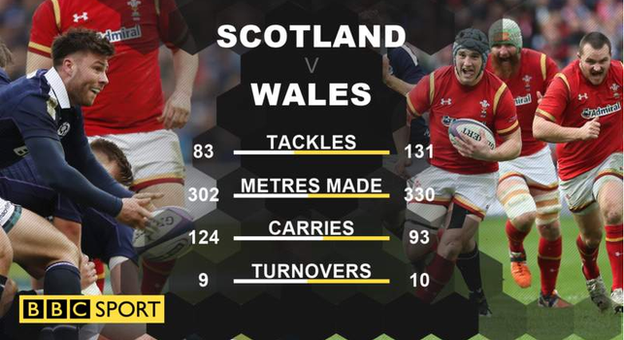
After that win, talk inevitably turned to the Calcutta Cup match against England in a fortnight's time.
Their best chance of attacking England is out wide. The catch is that they can't go there immediately.
You have to keep the opposition defence narrow with big runners or decoy angles to create the space.
Scotland have to put together a more complete performance than they have managed yet in the tournament.
They have to play as well as they did in the first half against Ireland across a whole match. If not, they won't win.
Wales fizzle out after Cardiff fireworks
This was an incredibly disappointing weekend for Wales.
Their performance was wonderful against England a fortnight ago, even if the result was not what they wanted.
Six Nations 2017: George North 'fighting for his place' - Bennett
But they backed it up with very little at Murrayfield.
By interim coach Rob Howley's own admission their title hopes have gone.
His selection for the next round against Ireland will show whether he is prioritising World Cups or saving face.
Fly-half Sam Davies came on as a replacement and is the sort of player who suits an adventurous, ambitious style.
But six minutes before he arrived on the pitch, Jamie Roberts had come on in the centres.
Roberts brings great experience and can dominate the gainline and guarantee quick ball.
But he is not the player to help Davies spread the ball wide.
We don't know if Davies could work alongside the starting midfield of Jonathan Davies and Scott Williams.
Now is the time to drop Dan Biggar and find out.
England slow to solve Italy conundrum
Italy's tactics - not engaging at the breakdown, not providing England with an offside line to work with and putting players into the channel between Danny Care and his runners - were really well thought out and executed.
England spent the first half flummoxed.
However if Conor O'Shea's side had tried it against New Zealand, the All Blacks still would have sussed it out straight away.
Firstly because it is a tactic that their provincial Chiefs side have employed in Super Rugby, external, but secondly because their on-the-field problem-solving and mental agility is what sets them apart from the rest of world rugby.
A better team than England would have adapted to it a lot quicker and I think England were embarrassed by the fact that it took until the second half for them to sort it out.
We didn't get a look at what impact coach Eddie Jones' changes had.
He brought Ben Te'o into the centres, gave Danny Care a chance to start at scrum half, but they never really got a chance to implement the patterns that they had been running in training.
There were plus points. James Haskell was strong and industrious from his open-side flanker berth. Elliot Daly always seems to have time on the ball and that is a quality that sets good players apart. Second rows Joe Launchbury and Courtney Lawes were outstanding in their workrate.
But there were concerns as well.
Owen Farrell had an uncharacteristically poor game by his standards and Ireland and Scotland will have earmarked George Ford's fly-half channel as a potential weakness.
After France attacked him and made metres in round two and Michele Campagnaro ran through him for Italy's second try at Twickenham.
However getting heavy traffic through on collision course with Ford, with James Haskell patrolling a similar area, is harder in reality than in theory.
Ireland's collective memory beats French muscle
As tight and competitive as this Test was, it was a defensive struggle that was not easy on the eye.
France seemed to have more power, but lacked the collective team cohesion that Ireland have built over a number of years under Joe Schmidt.
Ireland did what was required to win and France, for all their power, never really threatened to wrestle the game from them.
What Schmidt will have been disappointed by is that Ireland should have made it easier.
They had a few multi-phase passages of play near the France line which they failed to convert into scores. Good teams make those count.
That is a big coaching challenge of modern rugby.
It can become so frenetic and hectic. Nobody seems to be able to take the game by the scruff of the neck, have the clarity of thought to see where the opportunity is and have the skills to seize it.
Centre Garry Ringrose looked promising again, making a few half breaks and cutting back against the drift defence.
I would like to see him in a game and a backline with more fluency though to assess his ability to straighten though a hole and turn half-breaks into full ones.
Lion hunting
This is my third-round Lions XV, based on the form shown over the weekend.
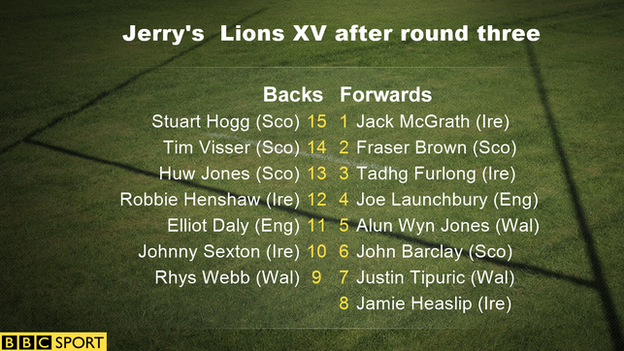
Jeremy Guscott was speaking to BBC Sport's Mike Henson.
More from rugby: |
|---|
Six Nations fixtures and Women's Six Nations fixtures |
For the latest rugby union news, follow @bbcrugbyunion, external on Twitter |
- Published26 February 2017
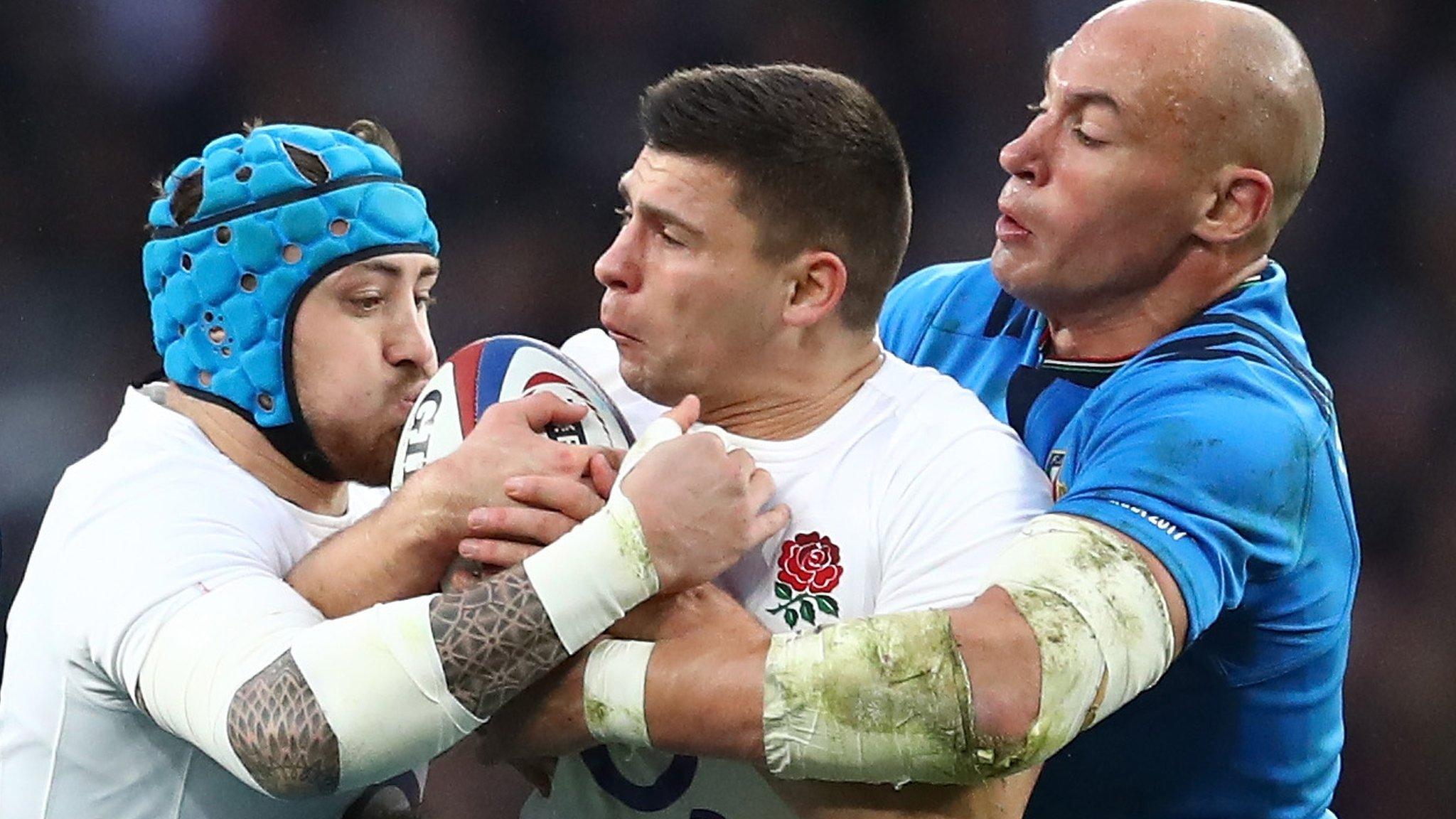
- Published26 February 2017
- Published26 February 2017
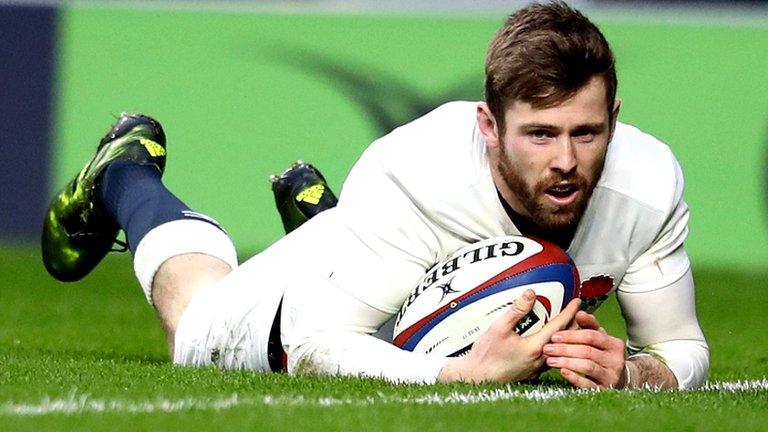
- Published25 February 2017
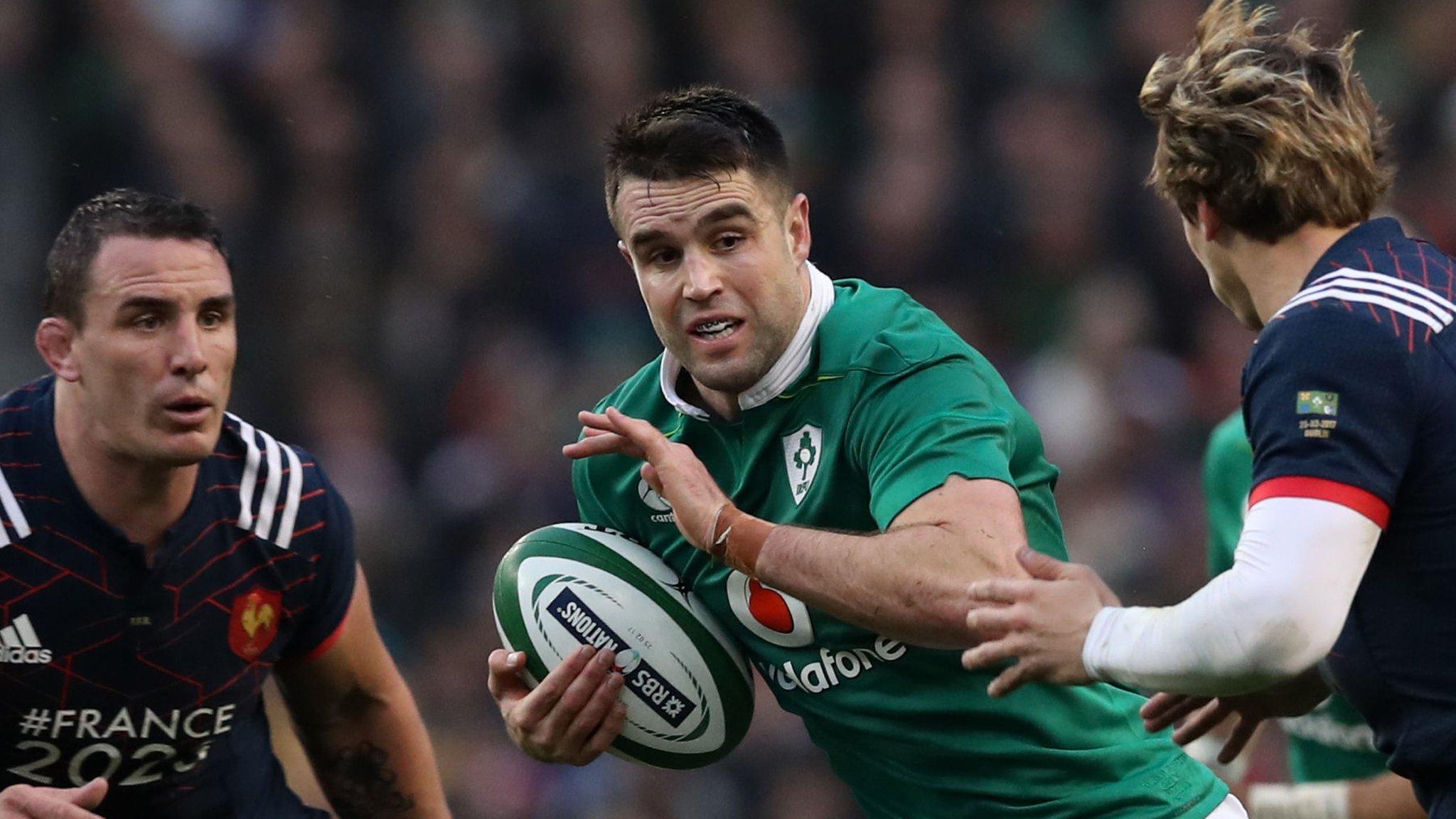
- Published25 February 2017
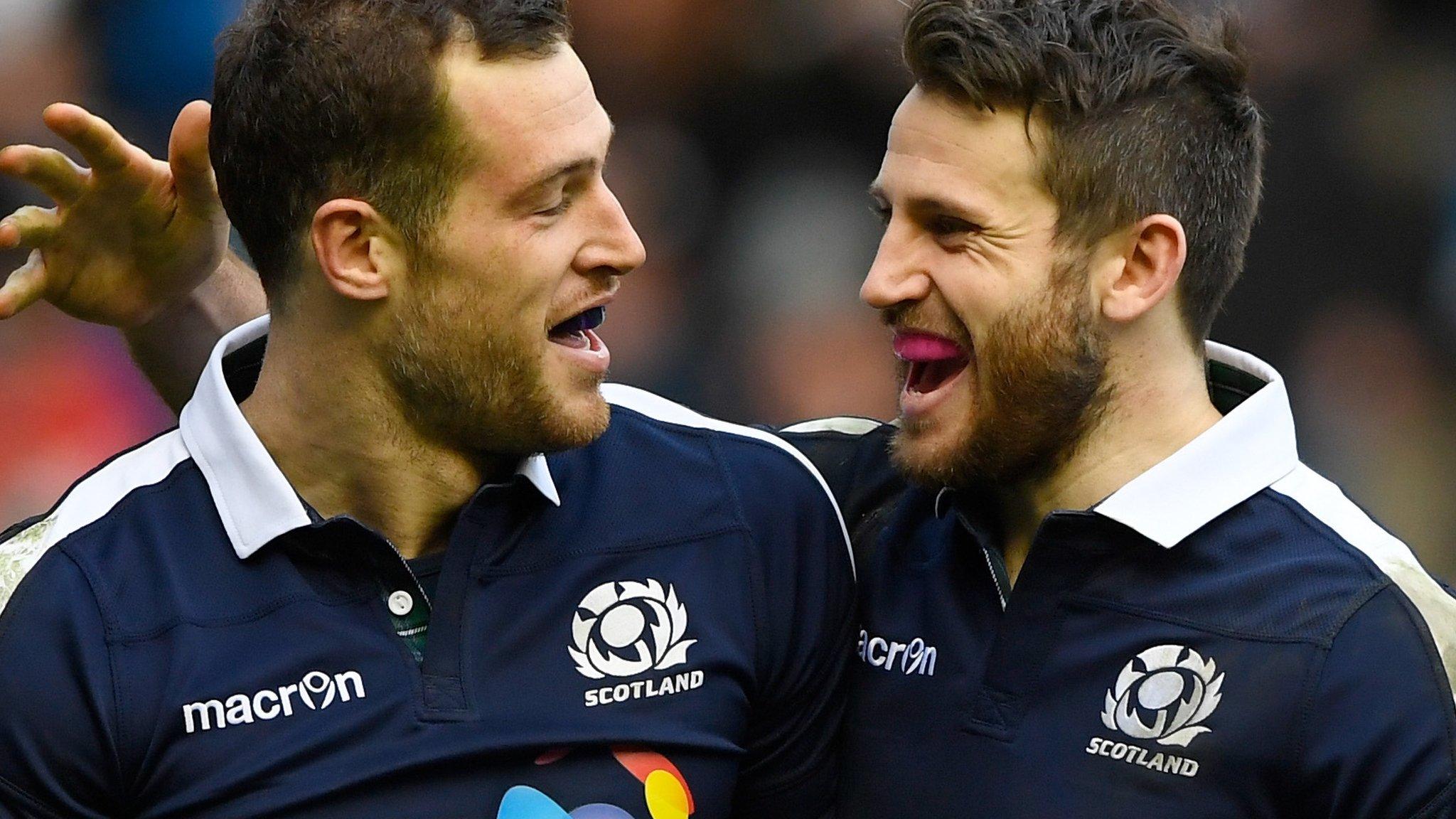
- Published17 March 2017
